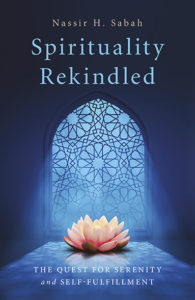(Original article: Mystic Living Today, June 2024)
Nassir H. Sabah
Abū Lahab, or “the father of flame”, was the nickname of a half-paternal uncle of the Prophet Muhammad, because of his bright-red complexion. Abū Lahab and his wife were such fierce opponents of Islam from the very beginning that a special, short, Chapter 111 of the Quran was revealed condemning them. The following are its first three verses:
May the hands of Abū Lahab perish, and may he perish (1). His wealth avails him not, nor what he has earned (2). He will burn in a fire of blazing flame (3).
تَبَّتْ يَدَآ أَبِى لَهَبٍ وَتَبَّ (1). مَآ أَغْنَىٰ عَنْهُ مَالُهُۥ وَمَا كَسَبَ (2). سَيَصْلَىٰ نَارًا ذَاتَ لَهَبٍ (3).
The fire of blazing flame refers to Hell in the afterlife. But what is extraordinary about these verses?
There were many early, fierce opponents of Islam, some of whom converted later and became very pious and prominent Muslims. In fact, ʿUmar ibn al-Khaṭṭāb had intended to kill the Prophet Muhammad but had a change of heart after his exposure to Chapter 20 of the Quran. He later became the second Caliph and is considered one of the greatest personalities of Islam.
Abū Lahab never converted, although the aforementioned verses were revealed ten years before he died in 624 CE. Had he converted after these verses were revealed and became a pious Muslim like others, he would surely have avoided Hell, but at the same time he would have inflicted a glaring contradiction in the Quran. For how could a pious Muslim be burned in Hell?
No mortal, not even the Prophet Muhammad, could have been certain that Abū Lahab will never convert to Islam and therefore contradict the Quran. Could any purported human author of the Quran have taken the risk of such a blatant contradiction? Most unlikely.
The lapse of ten years between the time when these verses were revealed, and Abū Lahab’s death was long enough to allow him to convert to Islam and become a pious Muslim had he so chosen. It was also long enough to expose any “deal” that could have been made with Abū Lahab so as not to convert. No such “deal” has ever been reported. It would also have been very opportune to dispose of Abū Lahab as soon as possible after the verse was revealed and not wait for his natural death because of illness ten years later.
Only an omniscient God could have been certain that Abū Lahab would never convert to Islam.
The verses concerning Abū Lahab are also very significant in another respect. According to the Quran humans have free will. Abū Lahab was free to convert to Islam, as others did, but chose not to out of his own free will. The verses illustrate that whatever choice one makes in exercising free will, an omniscient God has prior knowledge of it.
Omniscience of God encompasses all knowledge, past, present, and future. Is this beyond human comprehension or imagination? Sure, but consider this: who would have imagined, say 150 years ago, that it would be possible one day to “hear” or “see” someone on the other side of the globe, or store the contents of a million books of 1 MB each on a 1 TB microSD card 15×11 mm across and 1 mm thick? That was well beyond imagination at the time and would surely have been considered absolutely preposterous and utterly unworthy of “scientific” minds.
